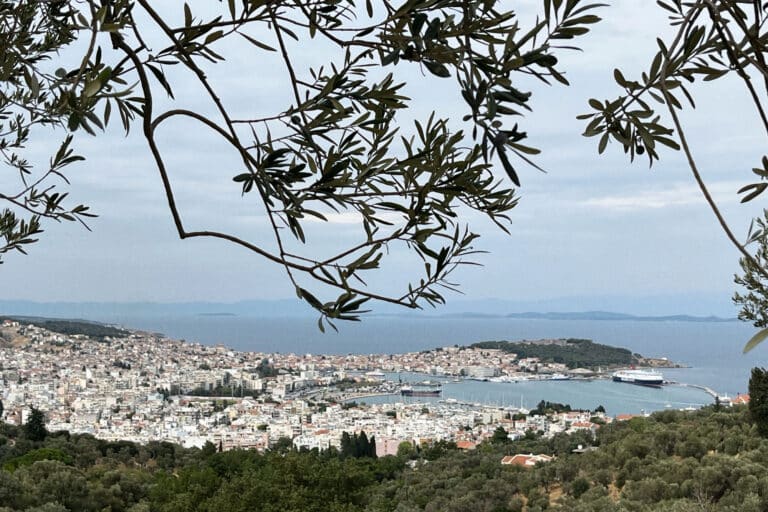AL-KHALIL (HEBRON) REFLECTION: We love the land
by a CPTer
I am a proud Ohio farm girl living and working as a Christian Peacemaker with
our Palestinian partners in Palestine. My rootedness to the earth has helped me
feel h at home here in West Bank, Palestine where the land is valued so
strongly. Back home in the States, however, I never had see my home demolished,
my trees uprooted, my land confiscated, my irrigation lines destroyed like my
Palestinian friends have. I have never been threatened with the
possibility of losing my home so other families may move in by what they say is
their legal right. No one ever forced me to leave my lemon tree or my huge fig
tree shading my courtyard, or my terraced garden that feeds my soul.
The Jabers see and love the amazing capacity of their plots of land to give them
almost everything they need. They marvel, as I do, at the mysterious productivity
they see in front of them every growing season. For them the earth is
mother. It provides for their families.
Ghassan raises tomatoes. For him the earth is teacher. It teaches
lessons every day during this long Occupation about learning to receive the
good, the bad, the blows, the storms, and the sun in life. It teaches
strength, endurance, ways to cope, and creative ways to survive.
For Zabadie and her husband the earth is friend. Its sands and soil soothe their
hands, their feet and their spirit. The clusters of plump grapes hanging
heavily from the vines close to their front door provide daily pleasure and
gratitude and are shared generously with friends around their table.
Since four settlers were killed recently in the area, none of these farmers feel
safe. Their farms border Rt. 60 where the murders happened. Because
the settlers who live in the nearby settlements always demand revenge, these families
fear for their farms, their land, and their families. They have seen the
path of settler vengeance often. They have experienced burned fields, home
invasions, confiscation of land and homes, ruthless violence on their properties
from these settlers. Recently one of our farmer friends said, “I don¹t
mind if the settlers eat my grapes, but why do they cut them and throw them on
the ground?”
During this harvest time of the year when earth¹s largess fills our granaries
and our cupboards, may we all extend our vision a little farther to these
people whose ownership of the land is daily challenged. May we find in
love for our own land enough motivation to pick up the phone, call our
legislators, and ask them to take more seriously the plight of the Palestinian
people who lose their precious livelihoods daily to Israeli settlers and
settlement policy.



